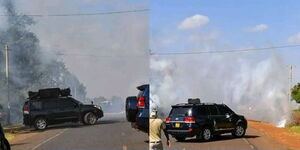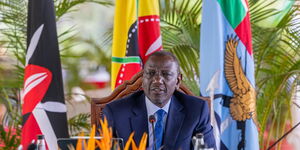There have been hushed conversations doing rounds regarding the circulation of the fake new currencies barely two weeks after the CBK unveiled them.
Despite the additional security features which include the texture, watermarked graphics and slightly raised indents on the zero figures in the notes, criminals have reportedly hacked a way of producing dubious copies of the notes.
A taxi driver was almost nabbed in Moyale town near the Kenya-Ethiopia border on Wednesday after he was handed Ksh 3,000 of the new currencies by customers whom he had transported to Ethiopia as reported by Nation Media House owned online platform Nairobi News.
Upon crossing the border back to Kenya, he went to deposit the money at an M-pesa shop but was shocked to be told that only Ksh 1,000 of the total amount was genuine.
The police in the nearby bank were called and arrived ready to apprehend the hapless driver but he managed to explain the situation to them and was let free.
Photos of foreign currencies whose texture, size and colour shades closely resemble the new Kenyan Ksh 1,000 note have been doing rounds in social media platforms as Kenyans try to warn each other to avoid being duped by tricksters.
Such incidences pose a great threat by adding more suspicions among people regarding the safety and genuineness of the new currency with many business owners in remote marginalized areas refusing to transact using the new currency notes.
“Today’s incident with the taxi driver and the fake money will make people here avoid the new money,” Fatum Issa, a resident of Moyale remarked
She went on to admit that the people in the area did not have an idea of how the new currency notes looked like.
“People here are not aware of the new currency. They don’t even know how it looks like. It’s becoming hard to buy anything here. Awareness campaign is needed, otherwise, these people will be conned," the concerned local pleaded.
Kenya has faced tough international relations in matters money after Uganda and Tanzania expressed their jitters in allowing the exchange of their money with the newer version.












